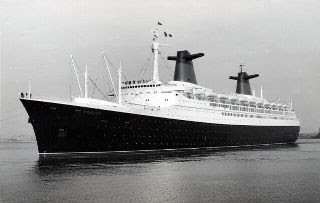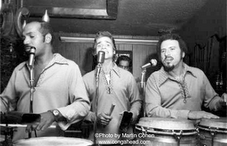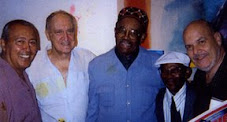
If Leo in mid-heaven conjuncts Jupiter, they say you will be in the company of nobility during your lifetime. If celebrities are our present-day nobility, then I’ve known my share of such encounters. Here are some:
How else could I bump into the Duke and Duchess of Windsor one dark night in Portofino? They were exiting Il Pitsofero restaurant—he, wearing the same colorful Bahamian shirt as I was. We had to have engaged the same tailor since there was but one shirt maker there in 1952, who was making such shirts long before they were for sale all over the West Indies. Celebrities are ordinarily caught trying to run and hide, but with such an opening encounter, I felt that they might have enjoyed some conversation. However, with their two small dogs barking at my Maltese and disturbing the locals, who rose with the early tide, and with my starving stomach joining in the growling, we parted.
One morning at the Carlton, Mr. and Mrs. Ed Sullivan entered the elevator I was in: he, wearing a red jacket and pink pants, and I, a pink jacket and red pants. Mrs. Sullivan looked at us and said, “You guys ought to get together.” On another encounter, Carmen Miranda gave me a big kiss because I said “Excuse me” in Portuguese. Without such heavenly intercession, how else could I be doing a fast rumba with Virginia Hill in front of Bugsy Seigel at the Beachcomber on the same night that I met Miguelito Valdés, Mr. “Babalu”?
I was behind Orson Welles in the revolving doors entering the Hotel Cipriani. Had he not scurried across the lobby so fast—perhaps hurrying to the john or to the restaurant—I would have liked to have told him that I had been the gaffer at his Mercury Theater rehearsals of War of the Worlds, on Halloween 1938. I would have mentioned how, during the actual broadcast, I was having a drink around the corner, relaxing while all the patrons including the bartender ran out in panic into Central Park to look up in the sky.
It wasn’t a beach day at Maracas Bay, Trinidad, but whenever we docked in Port-of-Spain, I got out of town and into the surf. To get there on the Atlantic side, where the waves hit, meant a long but beautiful drive over mountain roads built by the Seabees (construction battalions of World War II). Except for a discreet pair of lovers off in the far distance, there was only one other person visible, jogging along toward me. Known for his love of swimming and keeping fit, it was Robert Moses. Since working on ships keeps you safely uninformed about events on land, I had no idea that he was being vilified for wanting to extend Fifth Avenue by cutting through Sullivan Street, where my family once owned Number 117. I had heard about Robert Moses Park, so that when he asked my opinion about the Village project, about which I knew nothing, I said I felt that he was doing much to improve the city, together with Mayor LaGuardia. No doubt this response made his day. Swimming against a rising tide, he lost his struggle with politicians, landlords, tenants, heritage groups and progressive Democratic party boss Carmine Disapio. Imagine tenants and landlords teaming up, and early environmentalists flexing their power!
The brilliant musical genius, Ernesto Lecuona, sent me a note via his first violinist. It read, “Please come to my dressing room.” I was sitting up front at the Teatro Payret, and couldn’t wait for the concert to end. I found him sitting at a small piano in his bathrobe. “You are the first to hear this,” he told me while playing “Estas siempre en mi corazon,” (“You are always in my heart”). “Come to my Sunday bar-be-COO,,” he said, pronouncing “cue” like the French word for derriere. I happened to be “busy” that Sunday, and backed out.
The most famous prostitute in New York in 1949 was Mickey Jelke’s (the wealthy oleo-margarine heir) mistress, Pat Ward. Before rising to fame, she would visit us to play with our baby until, one day, comedian Joey Adams came and took her bodily out of the apartment.
Speaking of nobility, that prince of the church, Cardinal F. J. Spellman, was on his way to the Eucharistic Congress, in Rio. At the captain’s cocktail party on board the S.S. Brazil, I introduced him to the captain and his staff. Later, on shore at a reception the cardinal offered, he shook my hand and held on to it a bit longer than necessary.
Petrillo, the all-powerful head of Musicians’ Union 108, was heading for Italy aboard the T.V. Leonardo da Vinci. In the receiving line, he extended his pinky to shake my hand, due to his fear of germs.
M. Louis Viutton and I once had a vocal disagreement concerning the quality of his luggage. The Istanbul airport, built on low ground, was flooded. My luggage lost its shape, having sat there for some time. I had expected some polite apology; instead he shouted, “Your mistreated it!”
Montgomery Clift was another difficult celebrity. He was staying at the British Colonial Hotel where Bess Meyerson, the then Miss America, and the Maharani of Baroda, were also installed. The actor was so shy that it soon became clear that he was effeminate, especially when I mentioned Greenwich Village.
Señor Wences, the ventriloquist, resented my asking him to take part in the amateur passenger show aboard the T.N. Raffaello, even though James Roosevelt had volunteered to be a judge. Jan Peerce was humorous and a true gentleman but Rudy Valee, I think, resented my introducing him while wearing a tartan dinner jacket of the style that was popular in the 1950s. On the same program was Jessica Dragonette at the end of her career. Rose Bampton Pelletiere offered to entertain our shipboard passengers very graciously.
Marjorie Merriweather Post raised hell with me over the dusty condition of her private railroad car that was to take her from Miami to Palm Beach. She was absolutely correct. But I had to offer many apologies.
Her Highness Princess Elizabeth Chulalonghorn of Thailand was amazed by the size of our double door refrigerator. “The light goes on when you open the door!” she exclaimed with delight, never having seen one.
These run-ins with the famous came and went, but one remains with me especially. In 1941, in Guanabacoa, Regla, across Havana Harbor, a santero, Juan Beson, blessed me, saying “You will carry this music around the world.” So it was that in ’52 I did just that, teaching Latin dances on a world cruise and continuing to hope that, in spreading a musical gospel of salsa before the public, I can help make this world a bit merrier, for others and for myself.
 If Leo in mid-heaven conjuncts Jupiter, they say you will be in the company of nobility during your lifetime. If celebrities are our present-day nobility, then I’ve known my share of such encounters. Here are some:
If Leo in mid-heaven conjuncts Jupiter, they say you will be in the company of nobility during your lifetime. If celebrities are our present-day nobility, then I’ve known my share of such encounters. Here are some: 


